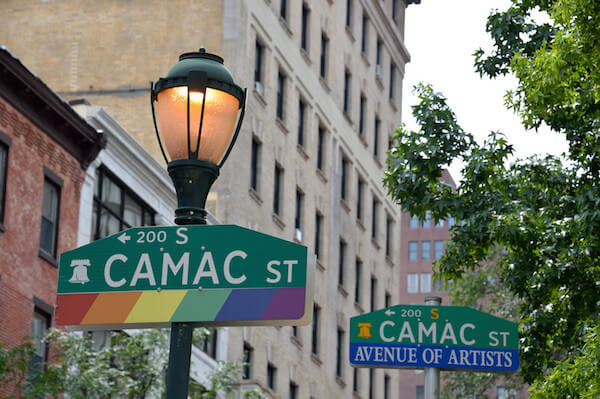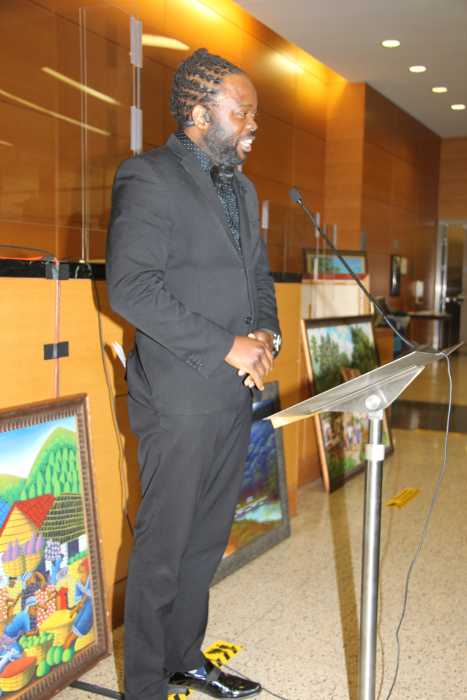Edie Windsor (r.), with her late spouse Thea Spyer. | NYCLU.ORG
Arguing that all government policies that discriminate based on sexual orientation should be treated by the federal courts as presumptively unconstitutional, the Obama administration has filed its brief with the Supreme Court in the Defense of Marriage Act case in which oral arguments are scheduled for March 27.
The case was brought by New York widow Edie Windsor, who is challenging DOMA’s ban on federal recognition of her Canadian marriage, which saddled her with estate taxes of more than $360,000 following the 2009 death of her spouse, Thea Spyer.
The February 21 brief, authored by Solicitor General Donald B. Verrilli, Jr., is a response to last month’s filing by former Solicitor General Paul Clement, who represents the Bipartisan Legal Advisory Group of the House of Representatives. BLAG, controlled by Republican Speaker John Boehner, stepped into the DOMA litigation in 2011 when the Obama administration announced it would no longer defend the 1996 statute.
Justice Department responds to House’s outside counsel as all parties answer jurisdictional queries
The day after Verrilli’s brief, the Department of Justice filed a second brief addressing jurisdictional issues the Supreme Court posed on December 7 when it granted DOJ’s petition to review this case. The federal district court in New York had ruled in favor of Windsor’s lawsuit, and the Second Circuit Court of Appeals, based in New York, affirmed that ruling last September.
Attorneys for Windsor and for BLAG also filed briefs on February 22 addressing the jurisdictional questions.
The Merits of the Case Verrilli’s February 21 brief on the merits of the case restated arguments now familiar from lower court proceedings. DOJ argues that “sexual orientation” meets the criteria the Supreme Court has used in the past to identify classifications that should be considered “suspect” for equal protection purposes. In reviewing cases alleging discrimination based on a suspect class, the government has the burden of showing that important policy interests justify the measure. The Obama administration argues that the policy justifications Congress stated for DOMA in 1996 fail to meet that test and that new rationales are now being articulated in a rearguard action to defend the statute.
When DOMA litigation first surfaced, DOJ had not yet concluded that the law was unconstitutional. In keeping with arguments it made in federal district court in Boston in 2010, the administration continued to assert that the ban on federal recognition would survive judicial review under the traditionally deferential “rational basis” test that some courts have applied to equal protection cases brought by gay plaintiffs.
The First Circuit Court of Appeals last year upheld the Boston district court’s finding that DOMA was unconstitutional, applying a more searching rationality standard than customary, and DOJ conceded that under that frame, the statute would fail constitutional scrutiny.
BLAG has asserted that DOMA does not merit heightened scrutiny, with Clement pointing to recent successes at the ballot box — such as the November marriage equality wins in Maine, Maryland, and Washington State — to argue that gay people are now a politically powerful group whose discrimination claims should be subject to the more lenient rational basis standard. In such cases, plaintiffs must show there is no legitimate purpose served by a statute under challenge.
DOJ vigorously and effectively responds to that argument in its brief.
“Gay and lesbian people are a minority with limited political power,” Verrilli wrote. “Although some of the harshest and most overt forms of discrimination against gay and lesbian people have receded, that progress has hardly been uniform (either temporally or geographically), and has in significant respects been the result of judicial enforcement of the Constitution, not political action. The vast majority of state voter initiatives directed at gay and lesbian people, even within the last decade, have repealed protections against sexual-orientation discrimination or denied gay and lesbian people the ability to marry. In any event, as confirmed by the applicability of heightened scrutiny to classifications based on gender, the fact that gay and lesbian people have achieved some political gains does not tilt this factor against, let alone preclude, heightened scrutiny.”
The DOJ brief also blasts BLAG’s reliance on the so-called “responsible parenting and child-rearing” theory, which posits that the purpose of marriage is to encourage heterosexuals to raise their offspring in stable family environments.
“Even apart from expert consensus that children raised by gay and lesbian parents are as likely to be well adjusted as children raised by heterosexual parents,” DOJ argues, DOMA “does nothing to promote responsible opposite-sex parenting or to prevent irresponsible same-sex parenting. Denying federal benefits to married same-sex couples creates no additional incentive for heterosexual couples to marry, procreate, or raise children together; nor does it disturb any state-conferred parental rights for same-sex couples.”
It is striking to read such arguments in a brief filed by the federal government, considering that early in President Barack Obama’s first term a DOJ brief filed in then-pending litigation caused a firestorm of protest by making the same arguments that BLAG makes now and that this newest brief rejects. The president’s “evolution” on same-sex marriage, as reflected in the arguments now being made by his administration, seems nearly complete.
Jurisdictional Issues
The jurisdictional issues raised by the Supreme Court in December may seem arcane and a bit of a side-show, but they may yet result in the court abstaining from deciding this case on the merits.
The high court may decide that since DOJ agrees with the Second Circuit’s opinion in the Windsor case, Verrilli’s petition for review presents no real “case or controversy,” a requirement for judicial review. It could also conclude that BLAG, as a committee of Congress, has no “standing” to defend DOMA before the Supreme Court, since no House member has any personal financial or liberty interest in ensuring the law is upheld.
It is unusual for the government to appeal a lower court ruling it agrees with. And BLAG did not file its petition for review of the Second Circuit ruling until after the court had granted DOJ’s petition. The Supreme Court has made no announcement about whether that petition has been granted or denied.
If the Court decides that the case is not properly before it, it may dismiss the petition and possibly vacate Windsor’s victory at the Second Circuit Court of Appeals, as well.
DOJ’s jurisdictional brief strongly argues that it is the exclusive representative of the interests of the government. Since the government continues to enforce DOMA but has been ordered to pay Windsor a tax refund, it has an actual stake in the litigation. The Obama administration argues that BLAG’s role in the case should be limited to filing a “friend of the court” brief rather than as an actual party with a stake in the outcome.
BLAG, in contrast, argues that the institutional interest of Congress in being free to pass laws regarding sexual orientation without being subjected to heightened judicial scrutiny is sufficient to justify its participation. Its brief notes that the House Republican majority authorized BLAG to “continue” representing the House in the Windsor case, though it did not have such explicit authorization when it first intervened.
Windsor’s brief on the jurisdiction questions backs up DOJ in arguing that the government’s agreement with the Second Circuit’s ruling does not deprive the Court of jurisdiction over the case. Windsor points out that under federal law, in order to sue for a tax refund she is required to sue the United States, which has refused to issue it despite her victories in the lower courts. Her only recourse is having the Supreme Court order the government to pay it. As a result, the government, as represented by DOJ, is a necessary party in this case.
Windsor also argues that the question of BLAG’s standing is not relevant to the question of the court’s jurisdiction since her legal claim is against the government, not against the House of Representatives.




































